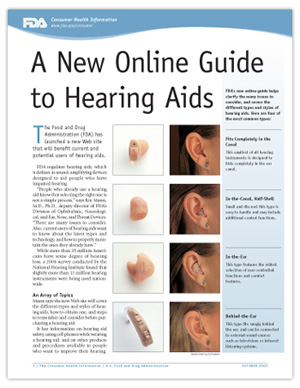Archive
Teen Hearing Loss on the Rise
The baby boomer generation may have an excuse for hearing loss caused by wild rock concerts- awareness was minimal. But with all the warnings linking noise exposure to hearing loss over the past couple of decades, researchers were surprised to see teen hearing loss is actually on the rise.
The study, published in the Journal of the American Medical Association on August 18th, found that 6.5 million teens ages 12-19 have some form of hearing loss. This is a one third increase since the 1980’s and 1990’s. A decade ago, 1 in 7 teens had slight hearing loss and 1 in 30 had mild hearing loss; these numbers have risen to 1 in 5 and 1 in 20 respectively.
Why the rise? Even though youth surveyed tended not to cite excessive noise exposure as part of their lifestyle, the paper’s lead author, Dr. Josef Shargorodsky, of the Channing Laboratory at Brigham and Women’s Hospital told The New York Times that this may be because youth surveyed don’t realize they’re listening to music at unsafe levels. Brian Fligor, an audiologist at Children’s Hospital Boston, told the New York Daily News that kids today listen to music longer and at higher volumes than previous generations.
The purpose of this study was not to determine the cause of the rise, study coauthor Sharon Curhan, a physician and researcher at Harvard Medical School and Brigham and Women’s Hospital in Boston, told Science News. However, she said that in addition to noise exposure, medical care, diet, lack of exercise, and obesity all play a part. In addition, Yuri Agrawal, an otolaryngologist at Johns Hopkins University Medical School in Baltimore who wasn’t involved in the study, also told Science News that children living below the poverty line are more likely to suffer, possibly because of untreated middle ear infections.
Researchers hope this study will raise awareness.
Hearing Aids Stigma Explained
 Healthy Hearing recently brought up a good point with regards to the stigma associated with hearing aids: Most of us don’t have a problem sporting a pair of glasses to read the morning paper, but when it comes to being assisted by hearing aids, we’d rather be a bit more discrete.
Healthy Hearing recently brought up a good point with regards to the stigma associated with hearing aids: Most of us don’t have a problem sporting a pair of glasses to read the morning paper, but when it comes to being assisted by hearing aids, we’d rather be a bit more discrete.
Is this because hearing loss is most often associated with aging, and no one wants to admit they’re getting a little older? Maybe, but aging isn’t the only cause of hearing loss. The Amercian Speech-Language-Hearing Association (ASHA) cites exposure to noise, disease or infection, ototoxic drugs, tumors, and trauma, as additional causes. So while the stigma might exist, it’s not entirely valid as a sign of aging.
Felicity Bleckly, Deafness Editor for BellaOnline, also wanted to explore this topic. She recalled a negative association with deaf individuals that stemmed from her own childhood. Her memories included watching deaf students who were segregated to a deaf school sign to one another instead of speak. When they did speak, they sounded funny to her, and she wrongly equated being deaf with being less intelligent.
This is not a wonder when one considers the shift toward acceptance and inclusion of individuals with disabilities has only occurred over the past few decades. The Individuals with Disabilities Act (IDEA), granting free and appropriate education to all individuals, was only made law in the past 20 years. Fortunately we are growing away from a narrow-minded mentality toward disabilities, recognizing and encouraging one another despite our differences. Perhaps as this shift continues to evolve, the stigma associated with hearing aids will decrease as well.
According to Bleckly’s research, the following reasons exist for the continued stigma associated with hearing aids:
- Lack of satisfaction with hearing aids
- Feeling excluded/different/ashamed
- Loss of confidence as a result of misunderstanding/making mistakes in conversation
- Remembering elders (grandma/grandpa) wearing hearing aids and thus feeling older or handicapped
- Negative stigma associated with aging
- Fear that a hearing aid will make the hearing person uncomfortable and hesitant to communicate
Regardless of why the stigma exists, the problem remains as important as ever: individuals with hearing loss may have a decreased quality of life if they don’t find help. Whether a hearing aid is needed, or simply a set of TV Ears when watching the television, everyone deserves a shot at communicating to the best of their ability.
SOURCES: Healthy Hearing, Amercian Speech-Language-Hearing Association (ASHA), BellaOnline- Felicity Bleckly





